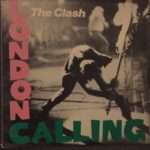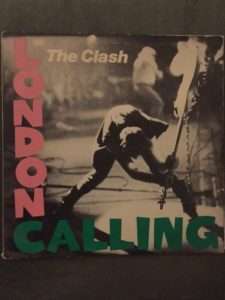Punk deceived itself
Never having been arrested, never having received a warning, never even having had a cross word with a police officer, I glared at the man who looked down at us from the upstairs window of a Taunton pub.
Forty years ago, Taunton was a country market town, it was the embodiment of shire respectability. Apart from the Glastonbury festival, which I had attended earlier that summer, Taunton was the only place in Somerset large enough to be considered for inclusion on the tour itineraries of bands that might be known. So it was that The Stranglers were to play in the Odeon on a summer’s night, except that the local police had cancelled the concert at the last moment, leaving hundreds of people milling around the town centre.
“Are you opening this evening?” called a man from the street to the man in the pub window.
“I am said the man – after this lot have gone.” He gestured in the direction of myself and the friend with whom I had gone to the concert. I might have suggested that we wouldn’t have wanted to go to a pub frequented by boring old men like himself, but said nothing. Had the pub landlord been acquainted with The Stranglers, he would have known that Hugh Cornwell, their lead singer was considerably more educated and cultured than the image of the band might have suggested.
Listening to Hugh Cornwell on BBC Radio 2, he chose the track Killer Queen by the band Queen as one of the most influential songs in his life. Hugh Cornwell spoke of how the song represented everything he disliked in music, “it is so up itself,” he told Johnny Walker.
“This is what you wanted to destroy?” asked Walker.
“No not destroy, this is what we wanted to set aside.”
Of course, they failed to set aside such music. Queen went on to achieve further massive success and the punk movement that Hugh Cornwell represented slowly fizzled out. Even when The Stranglers were at their height, disco music by bands like The Bee Gees continued to dominate the charts.
Punk, and the new wave of music that followed in it wake, was a break from the times of Abba and Elton John, but it never engaged more than a minority of the pop music audience. It provided a music and fashion culture for those disenchanted with the times, but, despite the lyrics of The Sex Pistols, it never posed a threat of anarchy in the UK. I still have my records from the time, I still enjoy the anti-establishment sentiments of The Clash, but they were no more a danger to the social order than an eighteen year old standing in a Taunton street.



Comments
Punk deceived itself — No Comments
HTML tags allowed in your comment: <a href="" title=""> <abbr title=""> <acronym title=""> <b> <blockquote cite=""> <cite> <code> <del datetime=""> <em> <i> <q cite=""> <s> <strike> <strong>